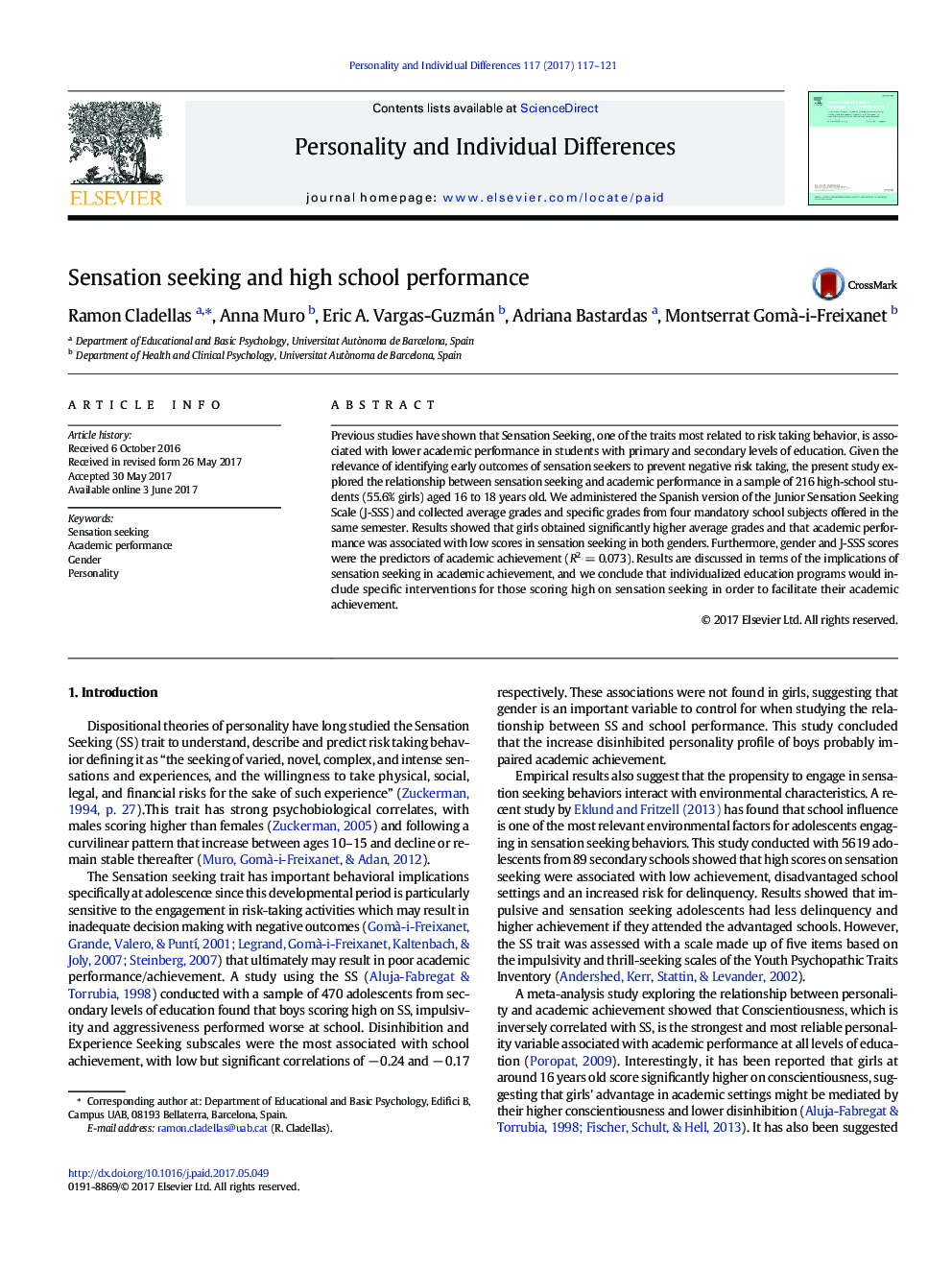| Article ID | Journal | Published Year | Pages | File Type |
|---|---|---|---|---|
| 5035984 | Personality and Individual Differences | 2017 | 5 Pages |
â¢Sensation seeking is inversely associated with average grades regardless of gender.â¢Secondary school girls outperform boys in academic achievement.â¢Gender and sensation seeking were the predictors of academic achievement (R2 = 0.073).
Previous studies have shown that Sensation Seeking, one of the traits most related to risk taking behavior, is associated with lower academic performance in students with primary and secondary levels of education. Given the relevance of identifying early outcomes of sensation seekers to prevent negative risk taking, the present study explored the relationship between sensation seeking and academic performance in a sample of 216 high-school students (55.6% girls) aged 16 to 18Â years old. We administered the Spanish version of the Junior Sensation Seeking Scale (J-SSS) and collected average grades and specific grades from four mandatory school subjects offered in the same semester. Results showed that girls obtained significantly higher average grades and that academic performance was associated with low scores in sensation seeking in both genders. Furthermore, gender and J-SSS scores were the predictors of academic achievement (R2Â =Â 0.073). Results are discussed in terms of the implications of sensation seeking in academic achievement, and we conclude that individualized education programs would include specific interventions for those scoring high on sensation seeking in order to facilitate their academic achievement.
